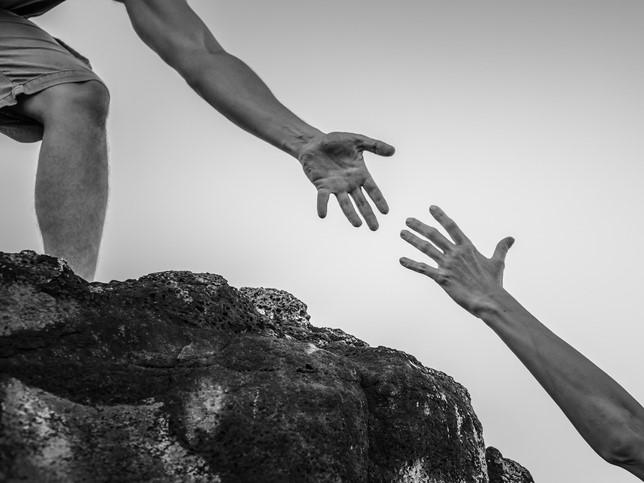
Why we should be humans first and academics second

You may also like
Collegiality – I’m all for it. How could you not be? Beloved of academic managers, especially following departmental reorganisations, it is, however, like other concepts such as “sustainability”, a somewhat slippery, ill-defined and conveniently occluded concept. And it is arguably more evident in its absence than its presence.
In his 2018 book, How to Be an Academic Superhero, Iain Hay urges us to “be a good colleague”. Similarly, we should “sustain collegiality” and to “the best of your abilities, try to help out” on the basis that what goes around, comes around – or as the Bible has it: give and you shall receive.
I see being collegial in terms of what community development practitioners (like myself) term “process” and “product” – that is, the way we behave and do business (process) is just as important as the end product, whether that be researching, publishing or teaching.
- Communities of practice: how to help them thrive
- We need our collegiality reserves replenished post-Covid – here’s how
- Inclusion of thought v inclusion of feelings: a showdown
Collegiality is not, however, (just) an act of philanthropy; it also has multiple benefits to the self. After all, behaving well and showing empathy and compassion make us feel better about ourselves. As the late, great writer Maya Angelou asserted, people “will forget what you said, people will forget what you did, but people will never forget how you made them feel”. Along similar lines, the philosopher of science J.D. Bernal noted how we should recognise ourselves primarily as citizens and only secondarily in terms of our job roles.
According to the Cambridge dictionary, collegiality means “a friendly relationship between people who work together or do the same job”. Friendliness is undoubtedly a strong base upon which colleagues, for example in a teaching team, can collaborate. Collaboration, in turn, requires trust – that we are dependable, operate on the basis of give and take, look out for one another and ideally contribute complementary skills.
The fly in this ointment is that academic performance is judged on an individual basis: how did you teach (according to student module evaluations)? What did you publish (and what impact factor did the academic journal have)? How much consultancy money did you bring in over the year?
So, academic performance as judged in annual staff reviews focuses on what you as an individual have generated, while friendliness and collegiality are deemed extraneous, intangible niceties. To return to community development thinking, here the product is seen to be of prime importance and the process much less so. Machiavelli would be proud that the end justifies the means: “OK, they’re not a team player, but look at the money they generate!”
Ironically, meanwhile, much pedagogic literature concentrates on the environment required to aid student learning, with one of the requirements being for teachers to create a supportive space in which learning and questioning are nurtured and encouraged through critical thinking. Is that also the case for senior managers in their relationship with staff? Or in exercising such constructive dissent do you run the risk of being badged a loose cannon?
If people are happy in their work, then surely they are more likely to prove loyal, hardworking and accept when more is sometimes asked of them. As such, collegiality is likely to be a key factor in staffing stability. So, how do you do everyday collegiality? Here are some simple tips and bigger thoughts:
- It has to be real, meant and authentic. Tokenism will be rumbled sooner rather than later.
- Say “thank you” for and congratulate jobs well done. It costs nothing but is a first casualty of work pressure.
- Reward teamwork. After all, the three horsemen of the apocalypse – war, pandemics and climate change − are multifaceted and interlinked. These require combined talents from teams of thinkers, explorers and doers who can effectively work across disciplines, facilitate unified progress and stitch together the remedial threads. For example, with climate change and dealing with Covid, there are social issues around people’s behaviour and how to influence it for human well-being, but equally there is the necessity for “hard science” breakthroughs, such as what treatments work, when, why and how. Such wicked problems need a team because the whole can be greater than the sum of the parts. Collegiality aids teamwork.
- Blessed are the patchworkers and bricoleurs, those capable of knitting together the tapestry of knowledge to deal with wicked problems in order to work towards securing our continuance on this planet. In the same way that students can undertake “combined studies”, I would argue for a new breed and nomenclature for such senior academics: cross-disciplinary professors and/or professors of integrated action.
- Teaching teams based on collegiality will be more resilient and capable of riding inevitable storms and setbacks. Whereas, if an individual falls over there may not be immediate backup, someone with understanding to step in or a Plan B.
James Derounian lectures on community governance. He is a national teaching fellow and a visiting professor at the University of Bolton, UK.
If you would like advice and insight from academics and university staff delivered direct to your inbox each week, sign up for the Campus newsletter.


